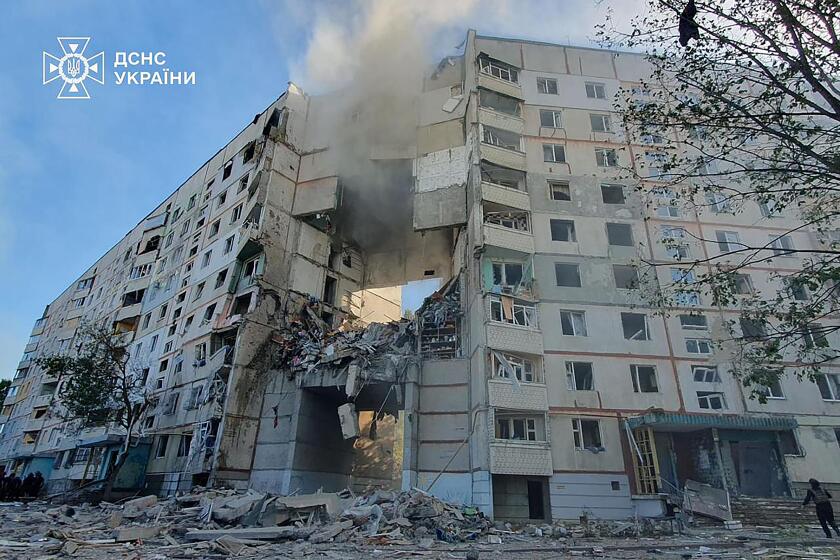Sanity and Justice Slipping Away
Accused terrorist Zacarias Moussaoui has spent the last two years like a freak on a leash -- raving his hate-filled fantasies as Atty. Gen. John Ashcroft pulls him from jurisdiction to jurisdiction in search of a speedy execution.
Now Ashcroft is upset that a federal court ruled against the government in a critical motion, and he may yank Moussaoui out of his civilian trial and send him to a military tribunal where the attorney general’s notion of justice will not be impeded by legal process.
When he was first charged, Moussaoui was presented as the 20th hijacker -- the sole survivor of the 9/11 conspiracy who would pay for that crime with his life. To better guarantee execution, Ashcroft had Moussaoui sent from Minnesota to Virginia, where the notorious “rocket docket” makes fast work of criminal defendants.
From the beginning, however, there was doubt that Moussaoui was ever a part of the conspiracy, and there is growing agreement that he is a barking lunatic. Now the Justice Department is facing the prospect of losing all or part of its high-profile case to a hate-spewing, rug-chewing maniac. Worse still, the government’s growing disaster is of its own making.
Lacking any meaningful evidence linking Moussaoui to the 9/11 plot, the government wrote an indictment that reads like a bad dime-store novel, describing shadowy figures and loosely imputing their actions to Moussaoui. A central character in this criminal novelette is alleged 9/11 mastermind Ramzi bin al-Shibh, who figures so prominently in the indictment that the government named him an unindicted co-conspirator.
That made Bin al-Shibh a material witness in the case, but the Justice Department was not concerned about his being called to confirm these facts because Bin al-Shibh was at large and believed to be possibly dead. That changed last September when a very much alive Bin al-Shibh was arrested in Pakistan.
Under interrogation, Bin al-Shibh has reportedly given the CIA some valuable information, but also one highly unwelcome tidbit: Al Qaeda thinks Moussaoui is as crazy as we do.
Bin al-Shibh reportedly stated that he did send money to Moussaoui as a type of terrorist retainer. However, he also stated that no one trusted the unhinged Moussaoui for such an important mission and that Moussaoui was never made part of the 9/11 conspiracy.
Such evidence might prove Moussaoui was part of a terrorist group and even secure a lengthy sentence. But Ashcroft doesn’t want to convict some terrorist wannabe with the dubious distinction of flunking out of suicide bomber school. He wants to execute the 20th hijacker and give Americans a sense of retribution for 9/11.
District Court Judge Leonie Brinkema, however, recently earned Ashcroft’s ire when she decided that Moussaoui had a right to question the most important witness in the case, Bin al-Shibh. After all, it was not Moussaoui who first claimed Bin al-Shibh as a critical party and co-conspirator; it was the Justice Department.
Moussaoui is not the only one asking for such access. In Seattle, federal prosecutors have asked to question Bin al-Shibh as part of their case against another alleged Al Qaeda operative, Earnest James Ujaama. The prosecutors have reportedly complained to the court that they have been denied access to an obvious material witness by the administration. Likewise, in Germany, a judge has criticized the U.S. for refusing access to Bin al-Shibh in the trial of accused 9/11 accomplice Mounir Motassadeq.
None of these judges or prosecutors is suggesting a coffee klatch among old terrorism buddies but rather a court-controlled, classified examination on the specific charges.
Not only has the Bush administration refused, but the Justice Department has asked for all proceedings in the Moussaoui case to stop and indicated that, unless Brinkema is reversed on appeal, it just might collect its trophy terrorist and go elsewhere. Moussaoui would then be shipped off for some tribunal-style justice -- commonly referred to in other countries as a lynching.
The Justice Department has gone out of its way to leak its travel plans for Moussaoui as a warning to Brinkema and other federal judges. Under the new Ashcroft doctrine, a federal trial has become merely one of many options -- a right that he will indulge as long as it is not abused by any attempts to prove one’s innocence.
Yet none of this has stopped the government from continuing the pretense of being a nation committed to the rule of law. Last week, when the administration was openly debating the removal of Moussaoui to a secret tribunal, it also was criticizing the Chinese government for the execution of a Tibetan for alleged terrorist bombings. The administration reportedly objected to the secret trials used to convict Lobsang Dhondup, in which the Chinese government denied basic rules of evidence, barred public access and limited appeals.
These are, of course, the very same characteristics of the Bush tribunals. President Bush could claim one dubious distinction: After years of human rights objections, China is finally meting out justice in conformance with American values.
More to Read
Sign up for Essential California
The most important California stories and recommendations in your inbox every morning.
You may occasionally receive promotional content from the Los Angeles Times.










